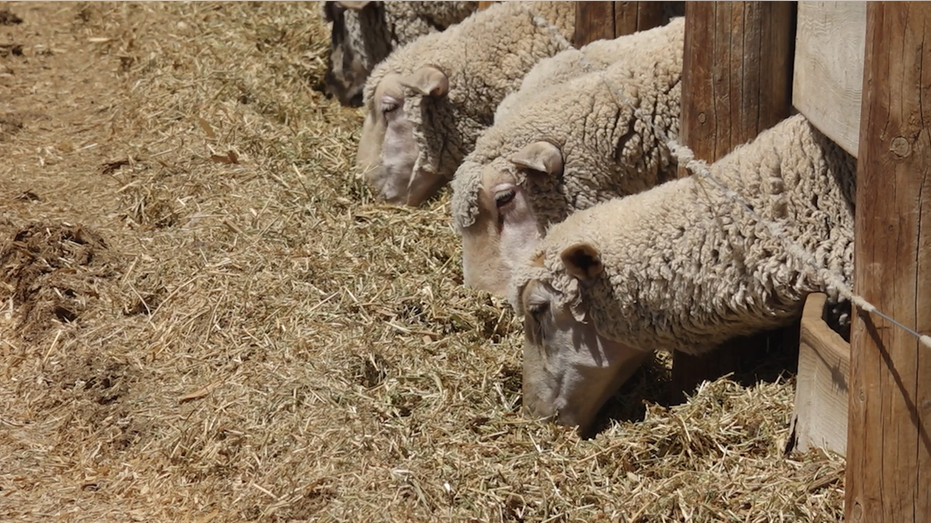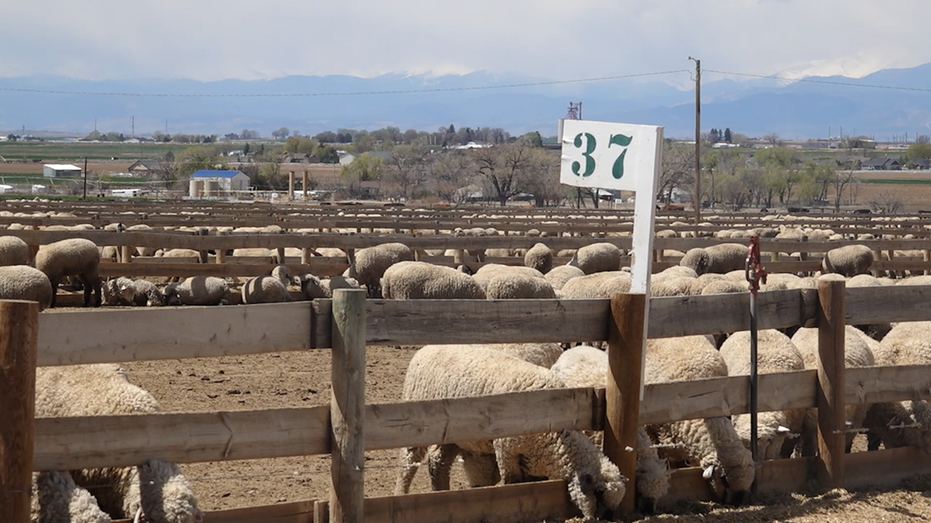Some sheep farmers are being impacted by the U.S.-China trade war in the form of unsold wool.
A large share of wool—about 50 to 60%—is typically exported, with China serving as the primary buyer and processor, according to the American Sheep Industry Association.
Under the Trump administration trade policies, there is now a tax rate of 145% that Americans must currently pay for Chinese imports. In response, China hiked its levies on imports of U.S. goods to 125% this month.
TRUMP HINTS AT CUTTING CHINA TARIFFS ‘SUBSTANTIALLY’ FROM 145%
Some American farmers say their exports have been caught in geopolitical crossfire.
Mike Harper owns a family-run feedlot in Eaton, Colorado called Harper’s Feeders. Harper said his feedlot has a capacity of 65,000 head of sheep, but the work has become significantly more difficult.
WHAT THE FINANCIAL MARKETS ARE SCREAMING ABOUT TRUMP’S TARIFFS
“I’ve seen this industry do nothing but shrink, from the time I was a young boy,” Harper said.
Already working under high input costs and tight margins, wool producers are now grappling with additional losses tied to the new tariffs.

TRUMP TARIFFS APPRECIATED BY US SHRIMPERS: ‘THREW US A LIFELINE’
“Losing seven to eight dollars per head on your inventory is substantial,” Harper explained. “We still rely more heavily on the meat trade—that is the value for us—but it all adds up.”
The American Sheep Industry Association says some shipments were already arranged earlier this year, but when China’s tariffs were reinstated, some containers were halted or rerouted.
TRUMP’S 10% BASELINE TARIFFS ON IMPORTS FROM MANY COUNTRIES NOW IN EFFECT
Peter Orwick is the executive director of the American Sheep Industry Association (ASI), which is “a national organization representing the interests of more than 100,000 sheep producers located throughout the U.S. From East to West, pasture-based flocks to range operations,” according to the Association website.

“We had sales that were set up this spring,” Orwick said. “But if you didn’t have the ships on the water, they were going to face the retaliatory tariffs—so I know we’ve had some containers that are not moving.”
According to the association, California and Mountain West states account for most of the nation’s wool production.
Meanwhile, with China being the world’s top wool processor, American wool is often sent overseas to be made into yarn, fabric, or clothing, much of which is later sold back to U.S. consumers.
Orwick explained the domestic sheep industry has been under economic pressure for years, with experts noting that tariffs imposed back in 2018 dealt an early blow. Orwick said the decline deepened during the pandemic, when remote work lessened demand for formal, wool-based apparel.
TRUMP’S TOP ECONOMIC ADVISOR SAYS TARIFF PANIC IS ‘EXAGGERATED’ AS STOCKS SINK
“You combine that with the pandemic and the reduced demand for office attire,” Orwick said, “with the advent of this retaliation, it’s going to be more of a struggle.”
Orwick said U.S. producers are now seeking alternative buyers including in Italy and Eastern Europe.
CLICK HERE TO GET FOX BUSINESS ON THE GO
President Donald Trump told reporters in the Oval Office on Tuesday that the overall tariff level imposed on China, currently 145%, will come down significantly but “won’t be zero” and said a trade deal with China could potentially “work out very well.”













